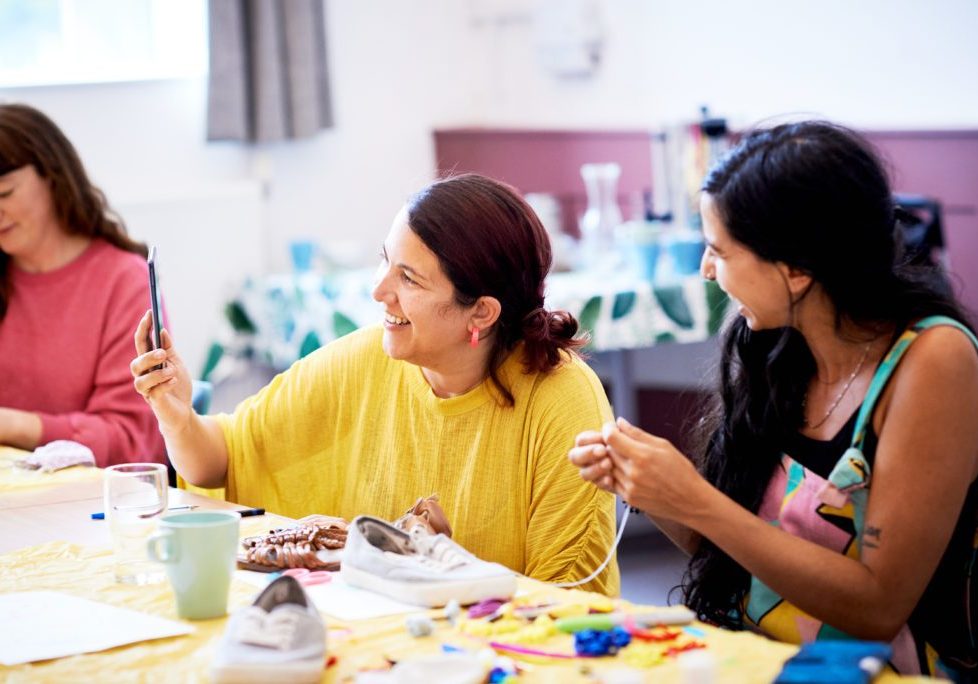
Grounding
Grounding is a way of helping people to feel calmer. It can help if you feel you are having a flashback, feeling like you are going to dissociate, or if you are having a panic attack.
How does it work?
Grounding is a way for us to help calm ourselves and let our mind and body know that we are not in danger. Here are a few key things to remember:
- Grounding can be done anywhere, any place or any time and no one needs to know you are doing it.
- Use grounding when you feel a strong emotion.
- Keep your eyes open to stay in touch with the present.
- No talking about negative feelings, you want to distract away from this.
- Focus on the here and now, not the past or future.
- Grounding is more than just a relaxation strategy, it is used to distract and help reduce extreme negative feelings.
How do I do it?
It’s important to find ways that make sense to you. There are some examples of grounding techniques below that are around thinking and some are around touch. Try different ways to see what feels right to you.
Mental grounding
- Have a good look around and describe your environment in detail, e.g. ‘I am on a train, I can see trees and a river…’
- Mental games, e.g. go through the alphabet thinking of different things such as types of dogs, different cities etc.
- Describe an everyday activity in detail, such as how to make a specific recipe.
- Imagery, for example imagining a stop sign in your head, gliding on skates away from the pain, changing the ‘TV channel’ in your head to a better ‘show’ or imagining a wall as a buffer between you and the pain.
- Safety statements, thinking ‘I am safe now, I am in the present no the past, I am in this location and the date is…
Physical grounding
- Run cool water over your hands.
- Focus on your breathing, notice each breath and and each breath out, slow it down and repeat the word safe on each breath in.
- Grab tightly onto your chair as hard as you can.
- Touch different objects, your pen, your keys etc.
- Dig your heels into the floor, remind yourself that you are connected to the ground.
Soothing grounding
- Say kind statements to yourself, e.g. you will get through this etc.
- Picture people you care about, look at photos of them.
- Think of a safe place, it could be real or imagined, for example the beach, mountains etc.
- Say coping statements such as I can handle this, I have done it before etc.
- Plan a safe treat such as a nice dinner, bubble bath etc.
- Think of things you are looking forward to, like seeing a close friend.
What if grounding doesn’t work?
The more you practise it the better it will work, so try to do some every day. It will become automatic after a while.
You don’t have to use the methods listed above, you could think up your own method, you may find that it works better for you.
Try to start grounding as early as possible in a negative mood cycle, for example just after a flashback, don’t leave it until after.
You can also teach family and friends about grounding so they can help if you become overwhelmed. Notice which method works best for you, you can use the mood rating scale for this, and lastly, don’t give up!
Read about self-care or visit our self-help guides for more information.
The latest from our news and blogs

Making Waves: building confidence and connection on the water
Earlier this year, we partnered with All-Aboard Watersports – a charity that helps people access watersports in the heart of Bristol Harbour. Together, we ran a weekly group for eight survivors currently waiting for support with SARSAS.












